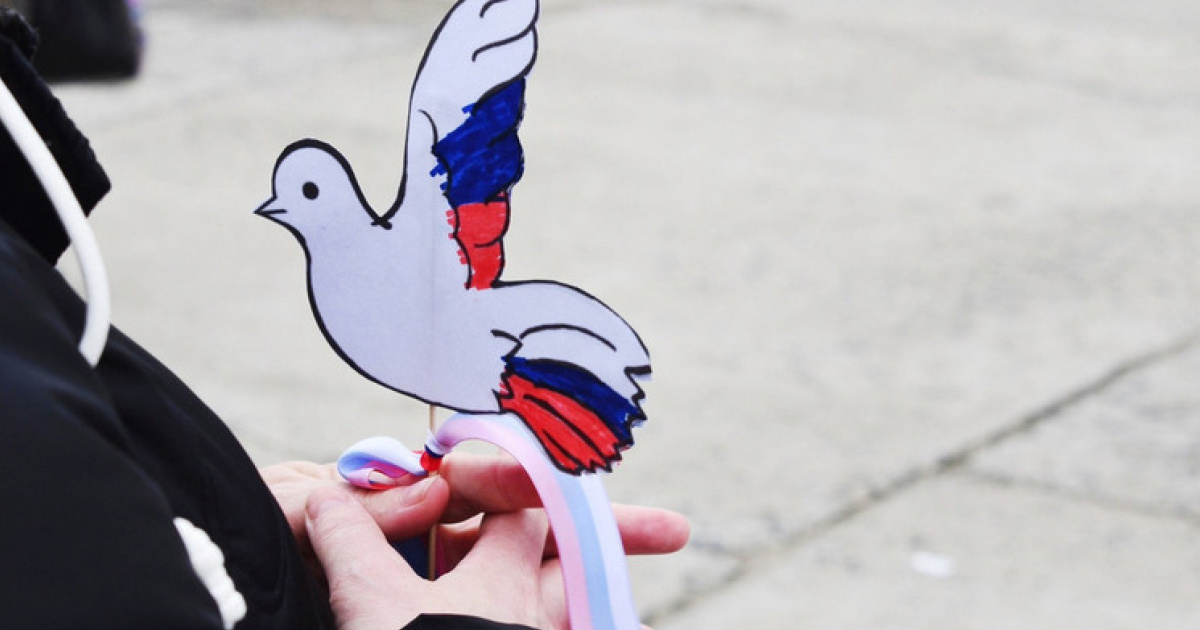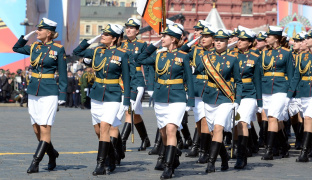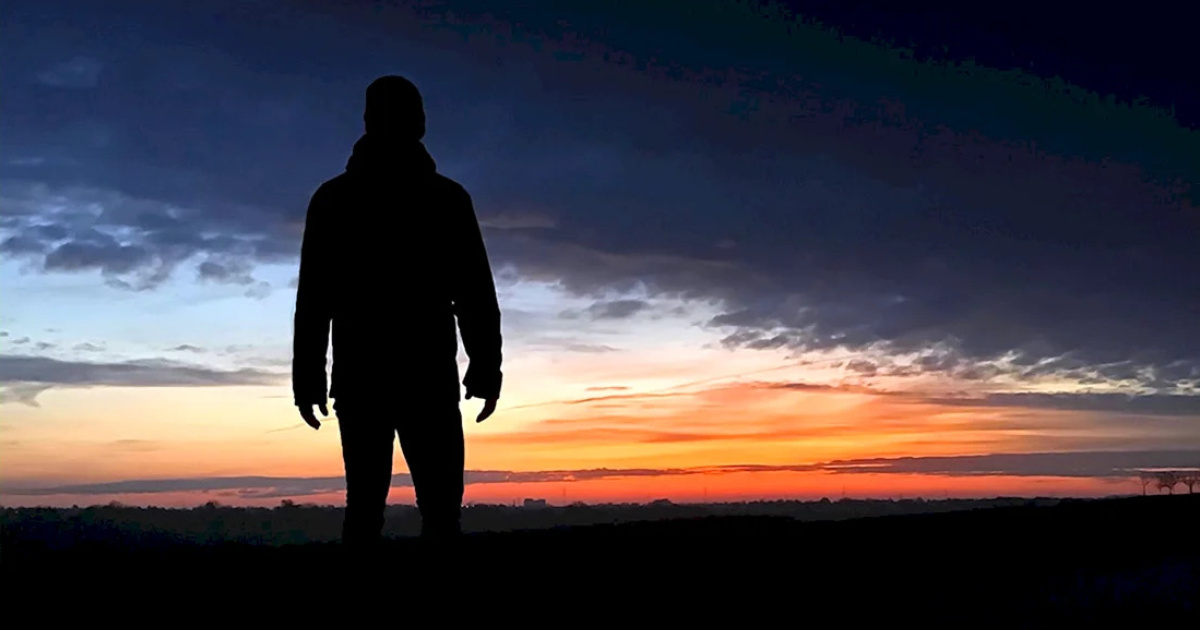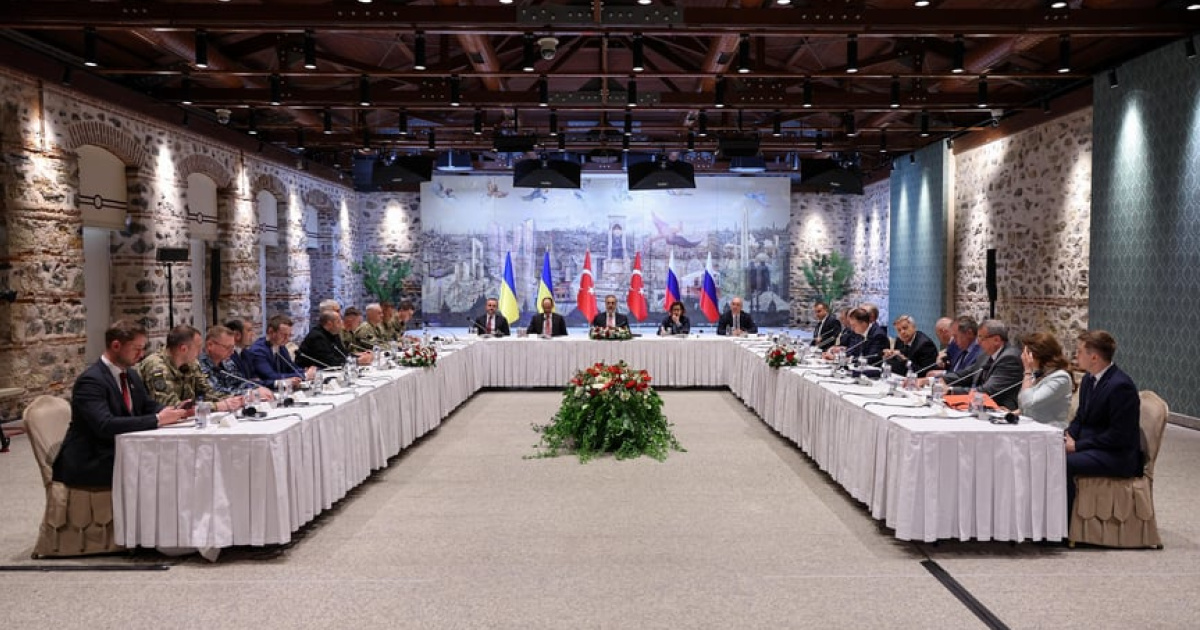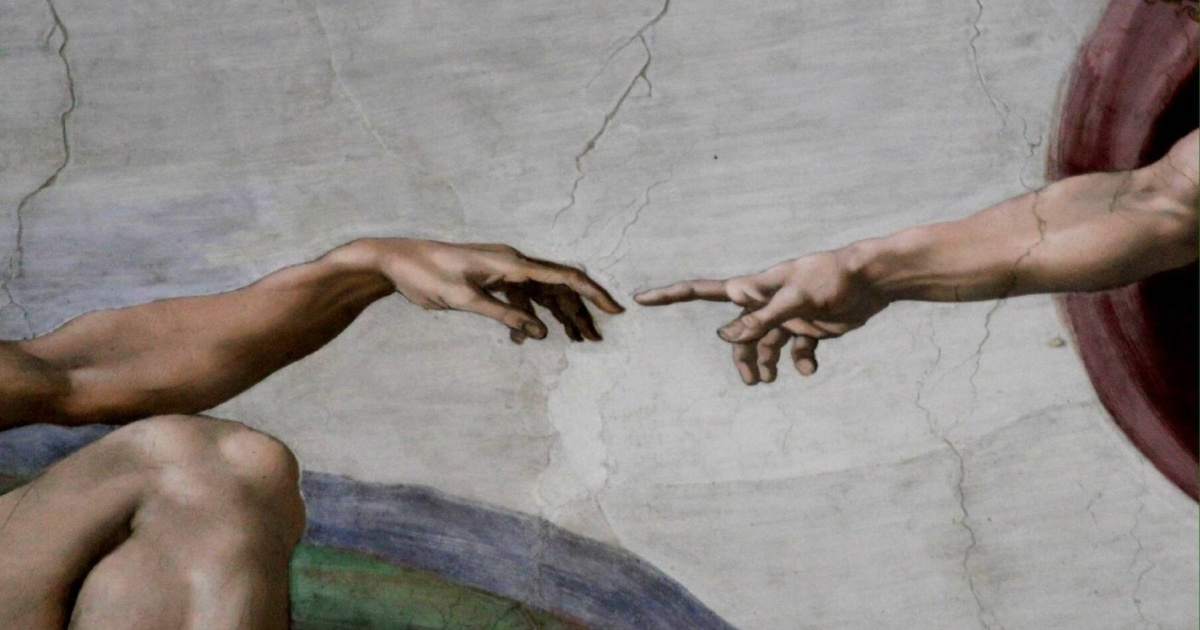According to UN data, 23% of the population of Ukraine or about 10 million people have the experience of volunteering. The sociological survey was conducted in November 2014 by GFK Ukraine commissioned by the UN Development Programme in Ukraine. According to the study, the average age of volunteers is 30-35 years. Most often they are students, journalists, businessmen, IT-specialists, accountants.
The names and faces of volunteers working on the territories controlled by Ukraine are often seen in social networks, media write about them, make reports, invite to talk shows. We get scarce information about activities of the volunteer groups in the occupied part of Donbass, we are limited only with the names of such organizations as the Pomozhem headquarters, Rinat Akhmetov's Foundation and Responsible Citizens group that have gained prominence due to the full support of the media.
Speaking publicly about volunteers on the uncontrolled territories is dangerous. The self-proclaimed authorities repeatedly warned the residents about the penalties in case they are involved in charity and helping humanitarian organizations. We’ll try to review major volunteer groups operating in uncontrolled parts of Donetsk region without naming Ukrainian patriots.
One can distinguish five groups out of the variety of volunteer life of the "Donetsk People's Republic". These are religious communities; organization engaged in distributing the assistance of international humanitarian agencies; civil activists; volunteer groups set up due to ideological propaganda of the "DPR"; and volunteers from the Russian Federation.
Volunteers of religious communities
Religious communities, presented on the pre-war map of Donbass, have supported their members since the first days of the conflict. Followers of Protestant churches help believers of other religions most actively. They go the the hottest points helping to evacuate women, children, the elderly, providing the people in the war zone with food packages, medicines, clothing and organized free hot lunches when it became cold. Helping people throughout the "republic", they introduce briefly - "we are volunteers" without demonstrating their religious views. Due to undisguised pro-Ukrainian position Protestants were the first whom the self-proclaimed "republic" arrested and harassed under the invented article "sectarianism and extremism".
"Once, it was in the end of August 2014, at six a.m. I received a phone call from an elderly woman:" Honey, are you a volunteer? Can you bring bread? – I heard sobbing, shooting and explosions on the phone. - We live in Biryuzovo. Please come ... " When we arrived (thanks to the Protestants, they are the ones who agreed to help us buy and bring food packages), it turned out that the house from which the woman called was on the line of fire. That house was like a line that separates the Ukrainian military and "militias". Products were not imported to Biryuzovo for 2 months. Old people, children, women (about thirty people) came out of the nearby houses, crying, took food and tried to kiss our hands repeating "Thank you, thank you, thank you ..." I was ashamed to look into people’s eyes, I felt ashamed that we couldn’t transfer assistance, so that people would feel dignified… Then they appeared - young, healthy guys, there were five of them, they stood aside without daring to approach and looked in our direction with hungry eyes. I was indignant: "How can they ask? Why don’t they go and find the food?" A granny says quietly:" They did not join the army of the DPR, they are hiding, waiting for our village to be liberated, they need to survive, so we share our food with them ... " - said a volunteer in Donetsk
Another volunteer group that is familiar to residents of the occupied territories is Donetsk volunteers of the International Society for Krishna Consciousness communities and the Pischa Zhyzni (Food for Life) project. Volunteers travel to the ruined towns and give hot vegetarian meals twice a week. It is usually buckwheat or other cereals with vegetables, bread and apple pie. They prepare about 600 servings each time. In winter 2014 when it was impossible to go to the Ukrainian part of Donbass because of the continued fighting and Russia's pensions and social benefits for mothers on children weren’t paid, food parcels and hot meals were the only hope for survival.
Vaishnava is one of the few volunteer groups that gained recognition and credibility both in the eyes of a wide range of people and leaders of the self-proclaimed "republic". According to the volunteers, people came dressed in camouflage uniforms to their temple before and brought cereals, the humanitarian headquarters of the "DPR" helped with the vehicles for the food delivery. The community raises funds for food itself, they come from all over the world.
"We were in Ilovaysk on December 29th. The city was destroyed, but windows were restored in several places. When we arrived at the House of Culture there was a New Year concert. People say that they had to hide in the basement of the House of Culture during the five weeks of fighting, all the windows were broken, but railway workers helped to restore them. Ilovaysk children are waiting for New Year presents from Russia - candies and Abkhaz mandarins (300 grams per child). Akhmetov's Foundation entered Ilovaysk only a few days ago.
Only the Red Cross out of all humanitarian aids entered, Russian volunteers organized a social dining room, three times a week they fed 70 people and Hare Krishnas from Donetsk brought hot porridge with butter for 800 people twice a week. The DPR also gave twice 1000 UAH to pensioners, 900 UAH for the disabled and 500 UAH to single mothers for children during two months (November and December). Teachers and doctors got salary.
The city has a hospital, a school and a kindergarten. Many people in Ilovaysk were injured as a result of hostilities - one leg was blown off, half a face was burnt. They ask for medicines for treatment.
Ten thousand of people stayed in the city. Two thousand eight hundred and forty children and five thousand six hundred and seventy elderlies were among them. Others, a little less than one and a half thousand - women and young people. Men were almost gone. Somebody was killed, somebody went to fight and somebody left.
There are twenty-five forced migrants from Donetsk. Humanitarian mission help the forced migrants unlike residents of Ilovaysk. Forced migrants don’t want to come back to Donetsk and live in dormitories. In April-May there were many forced migrants from Slavyansk in Ilovaysk. Now they call to come to them, but locals are afraid. They say: "Ukrainian soldiers will arrest us at checkpoints, it’s better to wait until Slavyansk is liberated, then we can go and visit" ... " - from travel writing of a Donetsk volunteer in December 2014
According to the Humanitarian Needs Assessment Report prepared by the Czech People in Need charity foundation in December 2014, representatives of the executive power in the "republic" recorded dozens of starving deaths. Later when the situation stabilized, the authorities tried to hide the data.
Organizations distributing the assistance of international humanitarian missions
Until recently there operated three leading service organization-supervisors in the "Donetsk Republic" that are involved in the distribution of humanitarian supplies imported by international humanitarian missions. They are MAXIMUM public organization, Responsible Citizens volunteer group and Most Social Development Center. After the expulsion of Responsible Citizens from the territory "of the republic", MAXIMUM NGO and Most SDC became the main partners which in addition to the humanities have a psychological assistance programme for the public.
All organizations were registered in Donetsk before the war and have the registration of documents in accordance with Ukrainian legislation (except for Responsible Citizens volunteer organization which was set up on the initiative of the four persons in May 2014 and has been long engaged in business activities on the site of the Donetsk Prichasnost Charity Foundation that also has Ukrainian registration).
To call these organizations "volunteer" is impossible. They implement projects for grants from international donors and the percentage of the own raised resources is significantly small in comparison with the grant that is the main financial source of the activity. Volunteers referred to in the public servers of organizations are, as a rule, social workers in the district centers, giving aid directly to the beneficiary. Each volunteer receives a monthly financial reward for a certain amount of work. The amount of payments depends on the dollar, which the donor is bound to.
Despite the repression against civil organizations and volunteers on the uncontrolled territories, Ukrainian job search sites continue to post vacancies of various humanitarian programmes in Donetsk and Luhansk. We ask readers to note that even in the case of a full benefit package, no international mission (including those with a UN mandate) will be able to protect their employees from the threat of prosecution and potential arrest on the uncontrolled territories. You should also note that allowing the work on "their" territory, "republican" authorities demand from international organizations lists of all staff and volunteers with their passport data. In other words, you become a potential target for surveillance of law enforcement agencies of "the DPR/LPR" from the very first minutes of work.
We have identified three main potential hazards that staff and volunteers should expect when working with international humanitarian missions on the territories beyond the control.
First of all, the "DPR" has not developed procedures governing the registration and operation of NGOs. And in the event of a potential conflict, as it happened with Responsible Citizens, the security forces will ban the work of the organization in the "republic" and employees, at best, will be deported to the Ukrainian side. At worst, they will be arrested for an indefinite period, accused of extremism and terrorism.
Secondly, all the volunteers working in humanitarian projects of international missions are vulnerable in the legal field. In the case of the arrest of an employee or volunteer formally working for a Donetsk public mediating organization (which, as we know, by "law" of the so-called "DPR" does not have the legal right to conduct economic activity on the territory of the "republic"), the international humanitarian mission actually does not bear responsibility for the safety of volunteers.
Thirdly, more and more often we hear complaints on refusal of Donetsk organizations working in partnership with international humanitarian missions to pay taxes in the so-called "DPR Pension Fund" from the payroll during recent months. International organizations (funders) have so far managed to ignore the questions of "deputies" of the so-called "People's Council of the DPR". But the probability of such a scenario when ordinary employees are found guilty, whom law enforcement agencies of the "DPR" will charge and force to pay taxes into the treasury of the "republic".
To show requirements expressed by the "DPR" to international organizations, as well as volunteers, we offer to watch the video interview of one of the adepts of "Donetsk People's Republic", coordinator of Donetsk City Volunteer Center Dmitriy Chernyshev.
In total, according to information we collected, about three hundred volunteers work for international humanitarian missions in the "Donetsk People's Republic" now.
Civil activists
Civil activists represent the brightest and most diverse group of individuals, who help population on the occupied territories not in a public way. The names of many of them may never become known to public. These are people of different ages, professions and social groups. They often do not know each other. They are united by the belief that "Donbass is Ukraine."
At pro-Ukrainian demonstrations in March 2014 a volunteer medical team was formed in Donetsk to provide first aid to the wounded and injured during the clashes. Subsequently, when the fighting broke out, Donetsk doctors saved the lives of many dozens of Ukrainian soldiers wounded in the battles in Volnovakha, Ilovaysk, Debaltsevo. At that time, the key cities were under the control of the "DPR" militants. And "ambulance" brought the wounded, militants came after ambulances and checked whom it brought. If they were Ukrainian soldiers, they were first tortured and then allowed to get medical aid. Doctors were forced to undress fighters on the way to the hospital, so they could not be identified and the wounded were put in an artificial coma. When the soldiers recovered, doctors secretly took them out of the hospital building and evacuated to the territory controlled by Ukraine.
"In early August our volunteering doctor from Donetsk rally called me during several weeks, he worked as a surgeon at Ilovaysk hospital, described how militants surrounded the villages around the city and asked to transmit collected information on the hot line of the SSU.
One night he called, spoke in a whisper, said he was hiding in the bathroom, urgently asked to inform the Security Service of Ukraine, so that they could send help. The militants captured two wounded, Ukrainian soldiers blown up on a landmine, closed them in the room, none of the medical staff were not allowed to enter, you can hear them beating the soldiers to get information about the deployment. The doctor asked the Security Service to help organize evacuation of fighters, he had planned to take them out of the hospital building quietly and hide, he asked ours to wait for them in a particular place.
He called back three hours later. He reported that during interrogation one soldier died, but the militants did not stop and continued to beat the second bleeding prisoner. Then our doctor yelled at militants, pushed them and gave the first aid. Two machine gunners were on duty near the ward, but the doctor was sure that he could bring the wounded outside the hospital, asked if help from the Ukrainian side would come.
He did not call anymore and I do not know whether he is alive. I couldn’t reach the SSU that night, I phoned Petryaeva, she was then in charge of the regional healthcare administration. Petryaeva contacted me with the person responsible for collecting information on the wounded soldiers. He got the information, there was no feedback from him,"- recollects coordinator of Donetsk volunteer doctors of summer and autumn in 2014
One of the most difficult pages for Donetsk volunteers are stories about the everyday life of residents of the penal colonies. Penal colonies became the most convenient objects for the filming for Russian TV channels to "demonstrate" executions during the first days of the war. Both the guards and the prisoners were hostages of the situation. The first did not dare to leave their post, the latter weren’t able to hide and became victims of flying Grads. Volunteers brought food and water to the prisoners. In the summer of 2014 the daily amount of water per prisoner was one liter in many Donetsk penal colonies due to constant failures in water treatment plant. Sometimes during the day the temperature reached 45 degrees Celsius. Subsequently, when the self-proclaimed authorities "acquired" own concentration camps and prisons, volunteers started to take care of the "institutions" acting as peacekeepers and negotiators. This group of volunteers is one of the most closed groups. Only a few persons know their names.
The group of "civil activists" also includes residents of settlements in conditions of anarchy took over the functions of the leaders of communities, bringing people together to solve the problems.
Many villages along the front line were left without authorities. Village head went to Kiev, Dnepropetrovsk, Kharkov, at best, left secretaries to give certificates confirming the place of registration.
Migration has been a constant phenomenon. People move from one village to another in search of safer places. Groups of activists were formed spontaneously among the villagers, they took over the care of fellow villagers providing them with food and medicine. And if women performed administrative tasks more frequently in the villages of Yasinovataya district (perhaps due to the fact that the villages are on the firing line and the majority of men either left or joined the "militia"), then men became heads of the village councils in the villages of Amvrosiyivka district (seriously affected during the"Ilovaisk pot"). At the same time, providing humanitarian Yasinovatskiy area was better than in the villages of Amvrosiyivka district. Yasinovataya district got help from Rinat Akhmetov’s Foundation, the Czech People in Need foundation, the Russian humanitarian aid. Neither international humanitarian mission nor Akhmetov’s Foundation came to the villages of Amvrosiyivka district until December 2014.
"We arrived in Zelyonoye village, met with the chairman of the Village Council. The Village Council combines 4 villages: Fedorovka, Zelyonoye, Sadovoye and Verbovoye. Before the war residents of villages were engaged in agriculture, part of the population worked in Ilovaisk railroad, others in Khartsyzsk plants. 840 people lived in the village before the war, now there are 640 including 241 retirees and 101 children. Many went to Russia.
School. The school has 77 children from four villages. A school bus (paid by Amvrosiyivka Department of Education) brings part of the children from Ilovaysk and destroyed area of the 14th school. School works full time, is heated by coal and has a canteen. They try to cook porridge with stewed meat for children. Parents pay 1 hryvnia extra for a piece of bread and butter.
Destruction: 53 houses were badly damaged in Zelyonoye, 18 houses of them were completely destroyed. The kindergarten is destroyed. School is restored, now it works. People from destroyed houses moved to cookhouse, some moved to the relatives.
Houses has furnace heating, there isn’t enough coal. There is a shop in each village. There are two shops in Zelyonoye. No gas. Water is central but except for Verbovoye, it has got a well. Light was restored two weeks ago. There is a medical center and a paramedic (retired woman). It needs medicine.
Humanitarian aid is not enough. Akhmetov did not come. Nazarov [chairman of the "National Committee for Humanitarian Aid of the DPR"] helped with a number of food packages - very small, only 17 packages, each with two kg of cereals and one kg of flour. The basic needs of rural people: food, coal, construction materials to rebuild homes ... "- from travel writing of a Donetsk volunteer in December 2014
Donbass-SOS NGO is the most trusted of all volunteer organizations among residents of uncontrolled territories. The paradox is that both like-minded pro-Ukrainian and pro-Russian people have credibility to Donbass-SOS. It is enough to travel by bus from Donetsk to any settlement on the territory under the control. When it is about passing, bribery, queue at a checkpoint or pension payments – the arguing parties refer to the Donbass-SOS.
A separate group making an invaluable contribution to the support of the people on the occupied territories is displaced persons who left for the territory controlled by Ukraine. They give money, help collect food, medicines and everything needed for reconstruction of destroyed buildings as a result of shelling at Donetsk hospitals, help the disabled and lonely people. There are numerous examples. For security reasons, most of the volunteers do not call their names. The growing repression and establishment of a monopoly on charity by the authorities of self-proclaimed "republics" endanger lives of the remaining relatives. Perhaps, when the war is over, we will describe the history of all good acts on the occupied territory thanks to the participation and support of our fellow countrymen.
Volunteer groups set up due to ideological propaganda of the "DPR"
Pro-Ukrainian volunteer groups on the occupied territories are not a monolithic movement, it is a kind of social fabric of Donbass, a lot of unrelated individuals who are united by common interests and values.
In contrast to the pro-Ukrainian volunteers, officially authorized volunteer association of the "DPR" is a subdivision of the "Donetsk People's Republic" public movement. Each large-scale volunteer initiative is approved by the "deputies" at the meeting of the "People's Council" or if it is about providing local services (for example, deputies of the "DPR" action on blood donation for children's Onco-Hematology department or congratulation to boarding pupils at Christmas), then the decisions of "deputies of "specialized committees" of the People's Council of the DPR."
As mentioned earlier, no organization or initiative has the right to work in the "republic" without the permission of the Accreditation Commission of the "DPR". Persons acting independently as volunteers are persecuted.
One can highlight two figures among the functionaries, policy makers of the volunteer movement in the "DPR" now - deputy of the "People's Council of the DPR", head of the Molodaya Respublika public organization Sergey Kondrykinsky and coordinator of the Donetsk City Volunteer Center Dmitriy Chernyshev.
"All of these volunteers have some stories. That church either steals or gives everything to relatives. Well, I inspected all these cities. When you have 500 humanitarian aid packages or 1000, diaper boxes, anything else - you're like a king in your village. You may give it to someone or may not give. And it’s the easiest to say: "Stop and arrest!" – it is the easiest. They all drink in these villages and towns, the prosecutor's office and the commandant.
We have a desire to understand everything, but you need to understand that it is impossible to understand. And most importantly, if you are asked for, it is better not to give because you can get into a trap. Imagine, if you help someone and that person is accused of something, you'll be connected. I know that the Russian humanitarian aiders - locals who worked with Rostov, Moscow got into the basement in autumn. They were incriminated as "Russian intelligence agent". Our MSS said: "You are Russian intelligence agents." They were doing some work. In general, nonsense. And they said: "You are working for Russian intelligence." Officially. In general, insanity. Then they charged not with "Russian intelligence" but with simply "stealing humanitarian aid", "inappropriate use", "disobedience to the laws of the DPR", "ignoring DPR laws". In general, they got into basements in October.
Now there is no need to get involved in humanitarian aid. Or rather take a step forward to this structure. If you do want to be involved in humanitarian aid, then get direct personal contacts. How and with whom exactly? Start with the deputies. Go to Gubareva who has her foundation and her own parliamentary group. She takes everyone ... "- from a conversation with an employee of the "Center of the Recovery of the Donetsk People's Republic", March 2016
Volunteers from the Russian Federation
As a rule, they are journalists, doctors or businessmen who share the views of the ideologists of Novorossia. Activities of Russian volunteers include fundraising and gifts for children of Donbass; buying baby food, hygiene products; helping the elderly with medicine, clothing, food; support of the "citizens of the L/DPR" in difficult life situations; attracting European MPs to cooperate with the "L/DPR"; participate in the meetings of "the People's Councils of the L/DPR"; development of legislation of the "L/DPR", etc.
You can read more about the everyday life of Russian volunteers on the pages of social networks. Anatoly Kotlyarov, head of the Bratskaya Pomoshch volunteer movement (Rostov-on-Don) and Marina Akhmedova, special correspondent of Russian reporter (Moscow) are among them.
"We started only with volunteering, but when faced the fact that it is sometime “to freeze” humanitarian aid as commercial, entrepreneurs of Novorossia face the same problems, then we shifted to educational activities.
Those twenty-two humanitarian convoys that came from Russia during all the time are enough for maximum two weeks of existence of Novorossia. Subsidies are not enough, it is necessary to tell how to build a business, organize trade flows, readjust to Russia," - said Anatoliy Kotlyarov, head of the Bratskaya Pomoshch volunteer movement.
Maxim Ksilantyev, for OstroV
